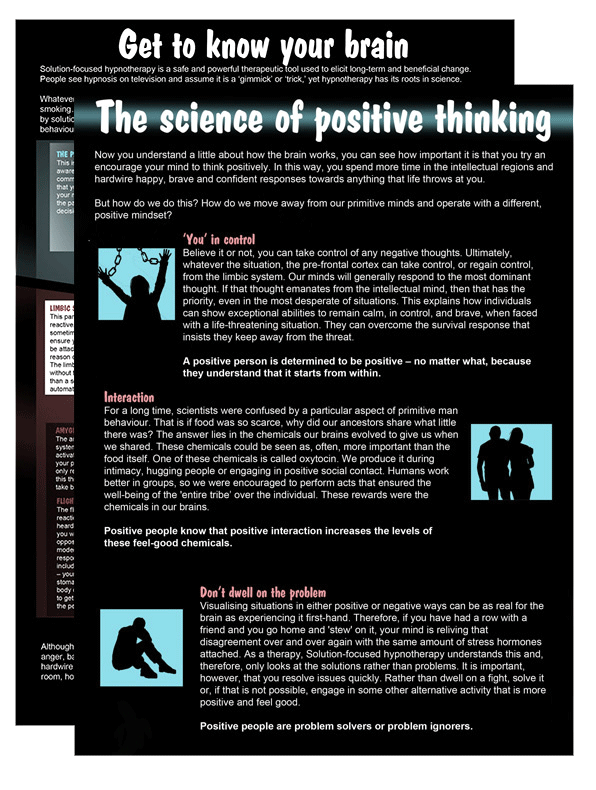Interesting Research Studies
Forester-Miller, H (2017) Self-Hypnosis Classes to Enhance the Quality of Life of Breast Cancer Patients. America Journal of Clinical Hypnosis, 60:1, 18-32
Faysal M. Hasana, b, Sofija E. Zagarinsc, d, Karen M. Pischkea, Shamila Saiyeda, Ann Marie Bettencourta, Laura Beala, Diane Macysa, Sanjay Auroraa, Nancy McCleary (2014) Division of Pulmonary, Critical Care and Sleep Medicine, Department of Medicine, Massachusetts General Hospital, Hypnotherapy is more effective than nicotine replacement therapy for smoking cessation: Results of a randomized controlled trial
Miller V, Carruthers HR, Morris J, Hasan SS, Archbold S, Whorwell PJ. Hypnotherapy for irritable bowel syndrome: an audit of one thousand adult patients. Aliment Pharmacol Ther. 2015 May;41(9):844-55. This article summarized outcome of hypnotherapy for one thousand IBS patients treated in a gastroenterology hypnotherapy unit in Manchester, England. All the patients were treated with 12 sessions of hypnotherapy following the structured treatment approach of the Manchester group. Overall, 76% of the patients improved from the treatment. In addition to bowel symptom improvement, non-gastrointestinal symptoms also improved significantly on average after treatment, and hypnotherapy also improved quality of life scores
Gonsalkorale WM, Toner BB, Whorwell PJ. Cognitive change in patients undergoing hypnotherapy for irritable bowel syndrome. J Psychosom Res. 2004 Mar;56(3):271-8. Cognitive changes were evaluated in 78 IBS patients who completed a 12-session hypnosis treatment course, using the recently developed Cognitive Scale for Functional Bowel Disorders. Hypnotherapy resulted in improvement of symptoms, quality of life, anxiety and depression.
Montgomery et al and colleagues 15-minute pre-surgery hypnosis session for pain relief. A clinical trial with 200 breast cancer patients. Journal of the National Cancer Institute 2004 (Vol. 99, No. 17) .The team reported that patients who received hypnosis before surgery reported less post-surgical pain, nausea, fatigue and discomfort. The study also found that the hospital saved $772 per patient in the hypnosis group, mainly due to reduced surgical time. Patients who were hypnotized required less of the analgesic lidocaine and the sedative propofol during surgery.


 1) Getting to know your brain
1) Getting to know your brain